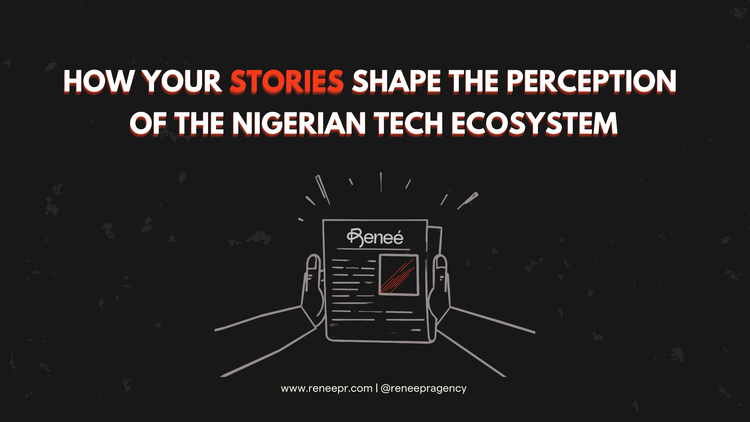Why startups need public relations from day one


The global startup ecosystem has experienced significant growth over the past decade, with emerging tech hubs driving innovation across continents. Technology startups, in particular, have revolutionised the way we approach problems with their innovative solutions. Yet, despite the rise in entrepreneurial activity, a considerable number of these startups shut down operations within the first few years after their launch. Why?
For many startups, failure often has less to do with the quality of their product and more to do with strategy. Entering an overcrowded market without clear differentiation, struggling to achieve product-market fit, poor financial planning, or lacking a clear brand identity can make it difficult to gain traction. Without early and consistent communication to show their unique value, even the most promising startups can struggle to earn the trust of users and investors.
This is where public relations comes in; it helps shape the perception of your startup and communicates your value through strategic and effective storytelling. Public relations should be an integral part of your early business strategy from day one.
Why Startups Delay PR
Despite the value of public relations, many companies, particularly startups, delay investing in it until much later in their growth journey. This hesitation often stems from reasons such as misconceptions about PR’s purpose, a limited understanding of its long-term benefits, and financial constraints.
A common myth is that PR is limited to press releases or crisis management. As a result, founders often view it as a luxury service reserved for major announcements or crisis management. But PR isn’t just reactive—it’s proactive. It shapes how your startup is perceived, builds trust over time, and establishes credibility with investors, customers, and the media. These are strategic advantages, especially in a competitive ecosystem.
A misguided notion that some companies believe is that good products speak for themselves. However, while product quality is essential, it doesn’t guarantee attention in a saturated market. Especially in sectors like fintech, edtech, or web3—where trust is hard-won—users need more than just a good interface. They want to know who’s behind the company, what values drive it, and assurance that the business is built for long-term growth.
Budget concerns are also a significant factor. Startups typically operate on tight budgets and face pressure to prioritise what appears to be most important: product development, hiring, and customer acquisition. PR, seen as a long-term play, is often relegated to the background. Many founders assume that unless they’re launching a product, raising funds, or responding to a crisis, there’s no urgent need for PR.
But waiting too long comes at a cost. Without a proactive public relations strategy, startups risk remaining invisible to potential investors, customers, and partners. PR done right makes sure that your story is heard by the right people at the right time.
Why Early PR Matters
Incorporating public relations from day one supports narrative control and strategic positioning. For early-stage startups, it answers fundamental questions such as who you are, the problem you’re solving, why the public should trust you, and what sets you apart from businesses offering similar services.
Unlike major industry players, most new companies have yet to build a recognisable brand or earn public trust. They often struggle with limited visibility and credibility, giving users and even investors little reason to take notice. That’s why early PR matters. Here’s how companies benefit from early PR:
It helps companies define their narrative
Public relations uses communication strategies, such as storytelling, to craft compelling narratives that resonate with your target audience. It humanises your brand and makes you memorable to users. Including public relations in your early business strategy helps define your company’s narrative: who you are, the problem you’re solving, and why your team is uniquely positioned to solve it effectively.
It shapes your startup’s brand identity and messaging from day one
In sectors where many startups offer similar services, public relations helps you articulate what makes you different. It helps strategically tell stories that align with your brand's values, tone, and mission, ensuring a consistent and clear message from the outset and ultimately shaping the public’s perception of your company.
It helps build the right kind of visibility
Good PR is about being visible in the right spaces. Spaces where your users, investors, and partners are paying attention. This could be a niche industry podcast, a social media community, a platform that hosts virtual speaking sessions, or a guest column in a notable digital publication that focuses on topics you’re passionate about. Visibility builds awareness and, eventually, trust.
It helps you educate the market and prevents miscommunications
Many Nigerian startups are building in emerging or misunderstood categories, such as artificial intelligence and blockchain technology. Adopting public relations from the start helps clarify your value proposition and guarantees stakeholders understand why what you’re building matters, from users to the media to potential investors. Startups that fail to explain themselves clearly from the start leave room for misinterpretation.
Public relations, when embedded early, does more than manage perception—it becomes a strategic tool that helps generate awareness, boost visibility, attract users, and even support fundraising efforts. Long-term growth begins with a strategy that prioritises public relations from the start, not as an afterthought.





